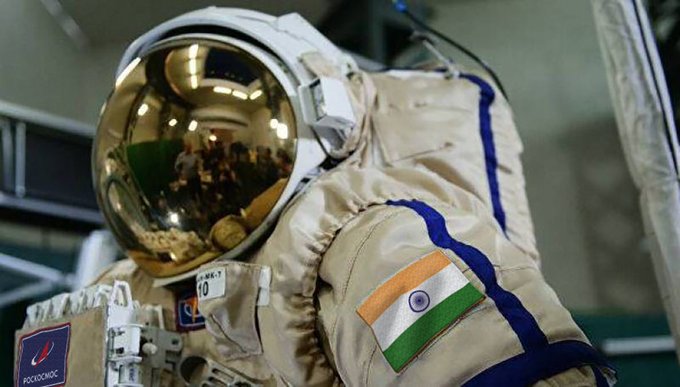
By Ritu Mousumi Tripathy
The Novel Coronavirus pandemic has battered every part of the world. Besides killing lakhs of people, it has devastated the global economy, shattered livelihoods, brought in prolonged unpredictability in the social, political and even strategic dimensions of the global order. The 21st century world has abruptly and drastically changed due to the unprecedented situation triggered by the pandemic.
While every continent of the globe is reeling under the catastrophe unleashed by this ‘invisible enemy’, the large-scale collateral damages along with the massive financial and economic redresses it has caused everywhere is going to be felt for quite some time. The road to recovery will happen, no doubt, but it would be a long journey fraught with difficulties and uncertainties.
India too is fighting this invisible war. The challenge, nevertheless, has created an opportunity of a golden kind for the country to bank upon its own resources – manpower and otherwise – to turn the tables on the crisis by opening up new avenues and opportunities in the direction of self-reliance and self-sustenance to build a stronger, more powerful, resurgent India in the foreseeable future.
Hence, the Government has come forth with a set of bold and decisive reforms measures for a range of key sectors – including the strategically important Defence and Space sectors. All these newly-announced reform norms, listed by the Finance Ministry amidst the ongoing Covid-19 crisis, have a clear undertone – that of a renewed “swadeshi” slogan – which aim at not only pulling the country’s adversely-affected economy out of the Corona crisis and secure livelihoods in the longer run, but also to vigorously push forward the steady emergence of a self-reliant, stronger and more powerful India, firmly securing its position in the global stage.
While reforms in the defence sector have been going on steadfastly, with several key policy decisions revolving around the flagship “Make-In-India” programme being progressively implemented, thus expanding and further strengthening the domestic defence technology base, the fresh set of initiatives, including raising the foreign direct investment (FDI) limit in defence manufacturing to 74% from 49% under the automatic route, making provisions for separate budgetary outlay to procure ‘Made-in-India’ military hardware, encouraging domestic production of spare parts of military systems procured from foreign defence firms, corporatisation of the Ordnance Factory Board (OFB), among other decisions, are expected to go a long way in not only nurturing, sustaining and further widening the domestic defence industry, but also increasing its efficiency and encouraging foreign firms to set up their production bases in India.
The Government, in 2017, had announced the innovative "Strategic Partnership" model for the procurement of high-tech, big-ticket defence platforms such as submarines and fighter aircraft for the Indian Armed Forces. The "SP" model essentially combined the "Make In India" push with a "Joint Venture" (JV) set-up between an Indian and foreign firm.
The first contract under the "SP" model was announced in January 2020. The Government shortlisted two leading Indian firms – the private sector L&T and the state-owned Mazagon Docks Ltd (MDL) – along with five foreign defence majors for the project worth Rs. 50,000 crore to build six conventional submarines in India. As the next step forward, both L&T and MDL would have to select a foreign partner out of the five shortlisted entities – ThyssenKrupp Marine Systems (Germany), Navantia (Spain), Naval Group (France), Rubin Design Bureau (Russia), and Daewoo Shipbuilding and Marine Engineering (South Korea) – to the build the strategic underwater platforms in India.
The success of this ambitious “Strategic Partnership” model would largely depend on how much the Indian defence industry could leverage in the long run from the OEMs (original equipment manufacturers) in terms of acquiring, absorbing and replicating the cutting-edge technology which would go into building such high-tech, modern military platforms and systems. Besides, such collaboration would play a "transformational role" in building a vast defence eco-system in the country.
In the meantime, the Defence Ministry too has recently come up with yet another progressive scheme under which requisite infrastructure would be developed at a cost of Rs 400 crore to help the domestic defence firms carry out testing of their indigenously developed military hardware in newly-built state-of-the-art test bases.
The Defence Testing Infrastructure Scheme (DTIS), under which around eight new testing and certification facilities would be set up in partnership with the private industry, would further help the private sector defence entities to expand and expedite their production and growth potential. The DTIs (defence testing infrastructures) would provide testing facilities for drones, radars, electronic warfare, ship motion and blast testing among other such systems.
All these reform measures would not only give a fresh impetus to the country’s ever-expanding defence industry base, but would also encourage it to innovate, develop and manufacture cutting-edge military hardware which could then be sold in the international arms market even while reducing India’s huge defence import bills.
Similarly, the country’s highly successful space sector, which has made a global imprint for itself by providing cost-efficient space launch and related services to many nations, is all set to embrace the newly rolled-out reforms. These initiatives include opening up the space sector to private players to build satellites, conduct space launches, and even take part in future planetary exploration and outer space missions. The private sector would be allowed to use ISRO facilities and other relevant assets to improve their capacities and conduct space launch missions.
All these new set of reforms, especially in the highly critical defece and space sectors, if implemented earnestly and efficiently, can bring in a paradigm shift for India which intends to establish itself as a major economic, political and strategic power in the 21st century.
 Previous Article
Previous Article Next Article
Next Article













The Indian Air Force, in its flight trials evaluation report submitted before the Defence Ministry l..
view articleAn insight into the Medium Multi-Role Combat Aircraft competition...
view articleSky enthusiasts can now spot the International Space Station (ISS) commanded by Indian-American astr..
view article